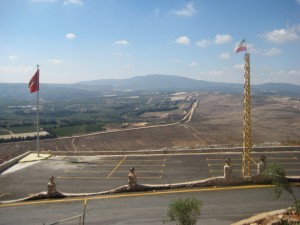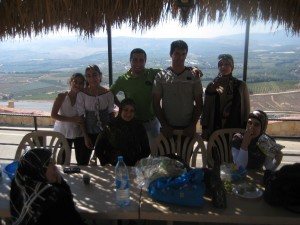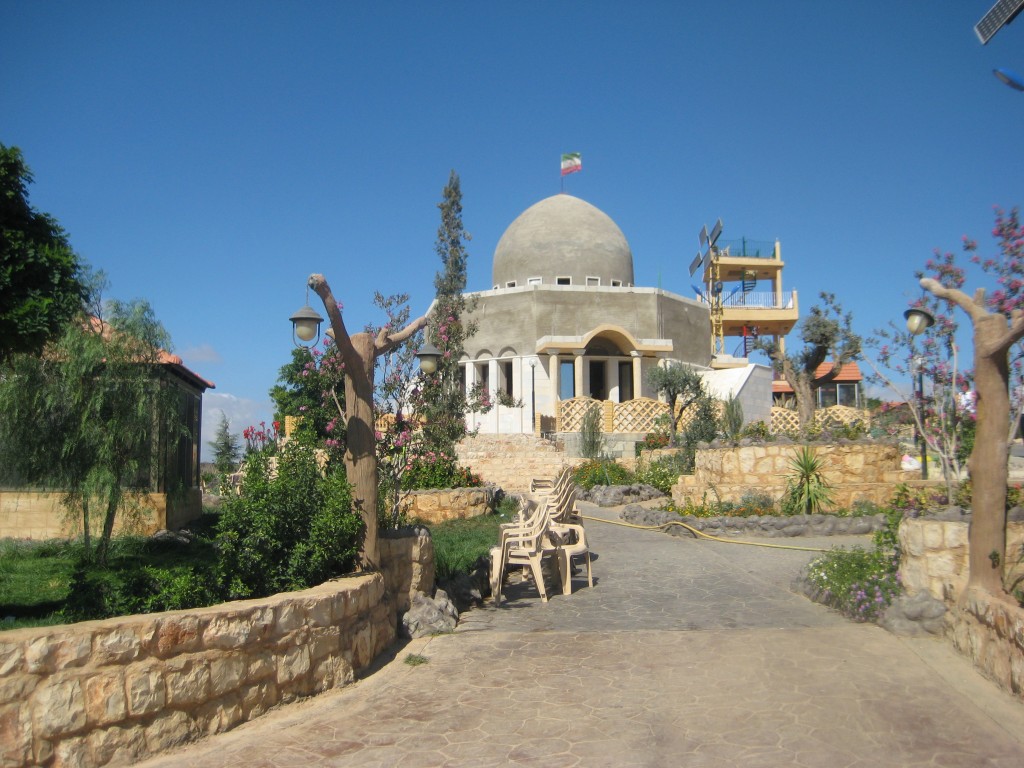Iran on Israel’s border
For as long as I’ve been covering this region, there have been some Israeli officials who describe Hezbollah as a crack division of the Iranian Revolutionary Guard and conclude that Iran has literally surrounded Israel.
In the war of rhetoric and symbols, Iran appears only too happy to oblige.
This weekend I visited “Iran Park” in Maroun Al Ras, the Lebanese border village where one of the first and nastiest engagements of the 2006 war was fought. Israeli ground troops got bogged down for days on the ridge at Maroun, and Hezbollah fighters consider it one of their finer engagements of the war.
 The Iranian government has funded and designed a lush park near the site of the battle, on the mountainside directly overlooking Israel. In the parking, visitors can stand at an observation point beside an Iranian flag fluttering in the wind, and look directly down at the Israeli hamlets of Avivim and Yir’on.
The Iranian government has funded and designed a lush park near the site of the battle, on the mountainside directly overlooking Israel. In the parking, visitors can stand at an observation point beside an Iranian flag fluttering in the wind, and look directly down at the Israeli hamlets of Avivim and Yir’on.
Through an arcade of ponsiana trees and an arch, past a commemorative plaque crediting President Mahmoud Ahmedinejad with gifting the park to the Lebanese, visitors find terraced playgrounds and picnic spots refreshed with the mountain breeze.
There’s soft-serve ice-cream trucks, grills, and replica of the Haram al-Sharif in Jerusalem – naturally, topped with an Iranian flag as well. Presumably, Israelis down in the valley can look up and see the Iranian flags and the replica Jerusalem mosque.
Along the path, detailed placards provided educational information about Iran – its population, its provinces, the neighborhoods of Tehran, and so on.
On Sunday mourning the park was already nearly full by 10 a.m. with families that had come to enjoy the cooler temperatures of Jabal Amal.

Three families from the humid coast had assembled under one of the palm-frond roof picnic stations, setting in for a long day grilling and eating.
“Coffee?” said Jihan Muselmani, 35.
“We come here for the clean air,” said Najua Khanafer, 52. “We thank all those who work for our land. Sayed Hassan, Iran, Qatar.”
“This will be the first place the Israelis destroy during the next war,” said Jihan.
“Even if they destroy it, we will build it up again,” said Rabab Haidar, 28.
“If you won’t have coffee, you must at least try these apples,” Jihan insisted, clutching a plastic tub of tiny green fruit. “They come from our own tree.”


